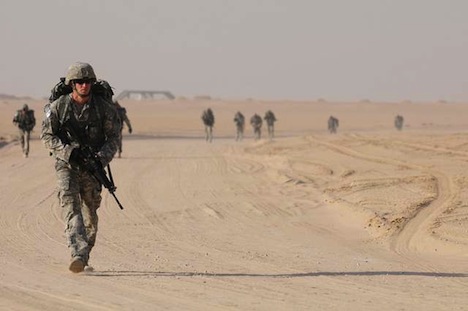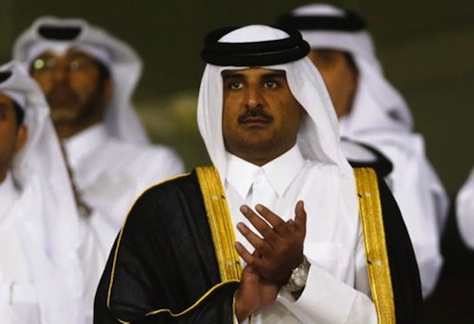
Kuwait, the oil-wealthy emirate that has for the past 20 years served as the chief base of U.S. military operations in the Middle East, will hold its third parliamentary election since February 2012 on Saturday, though the vote is unlikely to solve a growing political crisis over legitimacy and governance. 
Since independence from the United Kingdom in 1961, Kuwait has been ruled primarily by its emir, who has hailed since from the ruling House of Sabah, which has held some form of power in Kuwait since the early 18th century. Though Kuwait likes to style itself as a constitutional monarchy, the emir wields much more power than the National Assembly (Majlis Al-Umma, مجلس الأمة), which has at times been disbanded by the emir when its role proved too controversial. That means that no matter the outcome of Kuwait’s newest elections, the current emir, Sabah IV Al-Ahmad Al-Jaber Al-Sabah (or simply, Sabah IV), will continue to rule Kuwait. The emir, rather than the National Assembly, chooses the prime minister — since December 2011, that has been Jaber Al-Mubarak Al-Hamad Al-Sabah, also a member of the ruling family.
Opposition groups, including both secular liberals that are participating in the election, and Sunni Islamists who have chosen to boycott the election, have broadly called for a more balanced constitutional monarchy with greater power held by elected officials.
That doesn’t mean elections to the National Assembly are necessarily worthless — parliamentary elections in 2006 saw the rise of a majority of opposition figures to the 50-seat parliament. But Saturday’s elections will be plagued by an opposition divided over whether to boycott the elections, with many groups who decided to boycott the December 2012 now participating this time around. (It’s worth noting that parties, as we understand them, do not exist as a formal matter in Kuwait, so candidates run chiefly as independents affiliated with Sunni, Shiite, liberal, tribal or other groups.)
The elections are the latest iteration of a gradual crisis of governance that began with Arab Spring protests that engulfed the entire region throughout 2011 — Sabah IV dissolved the National Assembly in December 2011 and his prime minister resigned after tens of thousands of protestors took to the streets to protest corruption.
The following February 2012 elections marked a victory for Kuwaiti’s opposition groups, but Kuwait’s constitutional court ruled that the prior dissolution of the National Assembly and the February elections were invalid, reinstating the prior parliament pending new elections set for December 2012.
Many opponents, including the Sunni Islamists, boycotted the December elections, which marked the lowest turnout in Kuwaiti history — around 40%, down from about 60% in February. Opposition groups rejected the revision of election rules that would have made it more difficult to win (including, for example, a change that reduced each voter’s votes from four to just one). The December elections, however, were also ruled invalid by the constitutional court just last month, thereby leading to the July elections.
But a huge part of the opposition are boycotting these elections as well, which has led to renewed apathy in the days leading up to the campaign:
“This is an election without any soul,” Shafeeq Ghabra, a political science professor at Kuwait University, said by phone. “People have lost interest in overall results and mechanisms, and are realizing that not much will come of it.” The result will be “a fragmented set of individuals with no coherent political program.”
Among the groups boycotting the election, both in December and again now is the largest Islamic movement in Kuwait, the Islamic Constitutional Movement, or Hadas ( الحركة الدستورية الإسلامية, Al-Haraka Al-Dosturiya Al-Islamiyah), which you can think of as the Kuwaiti variant of the Muslim Brotherhood, though the Kuwaiti movement’s once-strong ties to the Egyptian Brotherhood are today virtually non-existent. The current Hadas movement is comprised of a new, younger generation of Islamists that were forged out of the experience of the 1990 Iraqi invasion of Kuwait and who had no qualms about fully engaging in Kuwaiti politics. The Islamic Salafi Alliance (Arabic: التحالف الإسلامي السلفي), a more hardline conservative Sunni group, is also boycotting the election.
The secular, liberal National Democratic Alliance (التحالف الديمقراطي الوطني, Al-Tehalef Al-Dimoqrati Al-Watani) will, however, contest the elections, as will the conservative Bedouin tribes that boycotted the December vote. A number of Kuwait’s top Shiite political groups will also participate in the vote, which isn’t surprising, given that the emirate is Shiite as well. Kuwait, like neighboring Iraq, is comprised of followers of both major branches of Islam — Sunnis comprise about 60% to 70% of the population, while Shiite Muslims comprise between 30% and 40%. The divide over whether to boycott elections means that Shiite representation in the National Assembly is likely to skew greater, because Sunni groups are disproportionately boycotting the vote.
The greater narrative, though, is that the split among Kuwait’s various opposition groups plays right into the royal family’s hands, which has successfully devised strategies to divide the opposition. And the greater hallmarks to watch for in the aftermath of Saturday’s election won’t necessarily be the results of a vote that have been boycotted by large portions of the electorate, but rather the turnout and how both boycotting and non-boycotting opposition groups respond to the aftermath of the election. Far more important than the vote itself will be the nature of the protests that are likely to accompany it — and whether those protests will unite or divide Kuwait’s opposition groups, regardless of which groups are now boycotting the election. Continue reading Kuwait’s elections won’t change the fact of the emir’s semi-authoritarian dominance →
![]()

